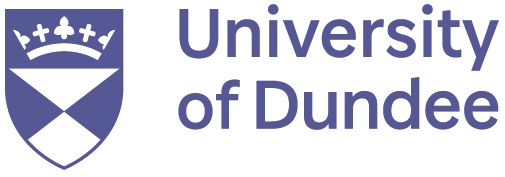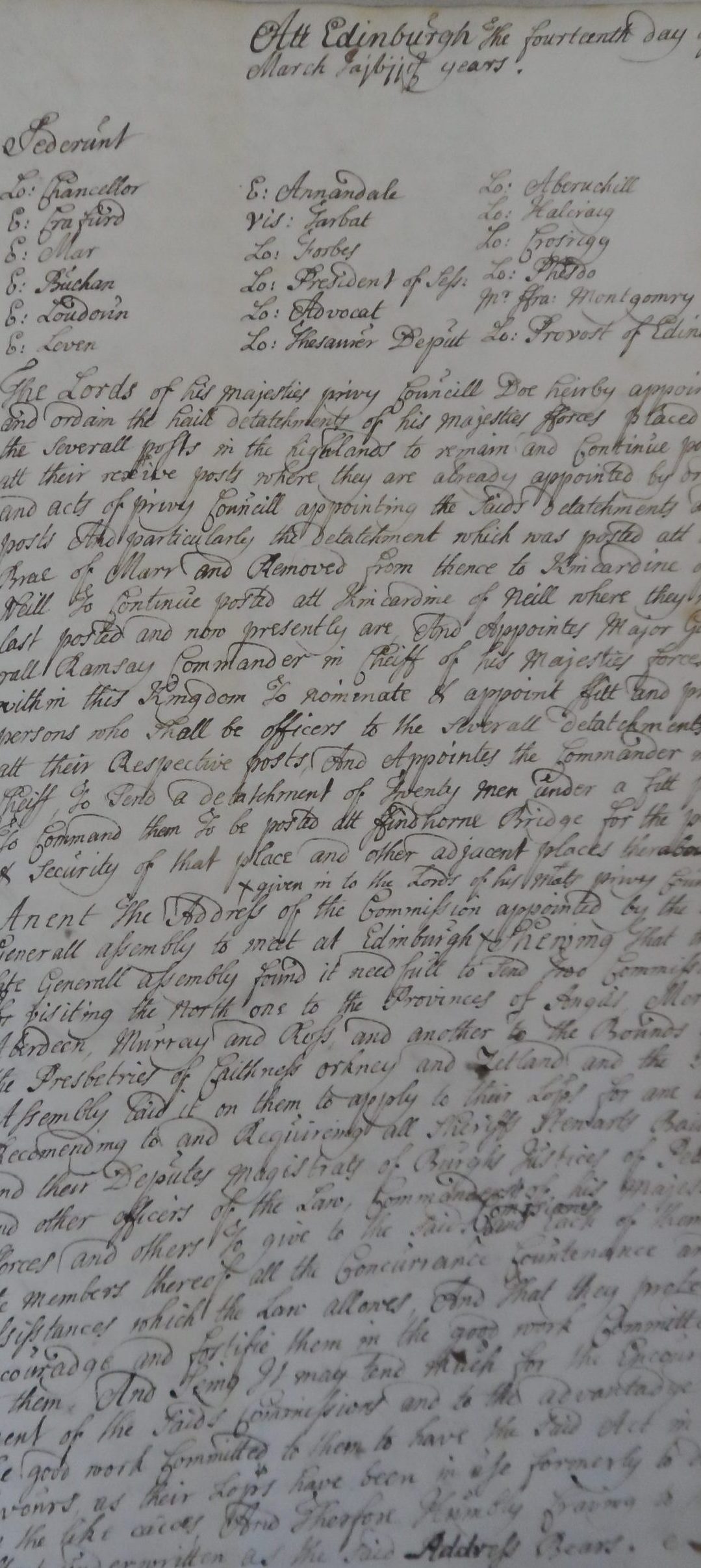

Welcome to the Scottish Privy Council Project!
The Scottish Privy Council Project (SPCP) was launched in October 2020. Due to run for three years, it is a collaborative project between the Universities of Stirling and Dundee centred on the extant records of the Scottish Privy Council between 1692 and 1708.
Aims and Scope
SPCP has two objectives. It will research the Scottish Privy Council, one of the most important institutional branches of Scottish government in the early modern period, focusing on the period from the Revolution of 1689 to the Union of 1707. Working with the council record a range of themes will be subject to investigation including law and order, national security, social cohesion and disruption, social control in support of the church, the prevalence of economic distress, the nature of micro and macro-economic policy, the qualities of institutional cooperation between the Council and other national and local bodies, and the character of foreign relations with England and continental Europe, are just some of avenues of research that can be investigated with new vigour. Such themes are reflected in the targeted research of the team: the Council’s institutional history, linkages to other national and local institutions, judicial activities and the body’s social and political significance in the period. Many thematic research options are clearly available to the research team given the multifaceted role of this executive branch of government. The fall-out from the Revolution of 1689, the internal threat of Jacobitism and Highland insurrection, the economic collapse of the 1690s and ultimately vain efforts to solve it, the demographic crisis of the famine years in the late 1690s, the impact of international warfare, the Anglo-Scottish political crisis of the pre-union period and the parliamentary union itself make this a fascinating period for research. From the rejection of absolutism to the creation of the United Kingdom, with all resonance of the current, 21st-century debate over identity and nationhood, there are issues of government and constitution to be explored.
The second focus for the project results from the fact that no published records exist for the Council in the years from 1692 to 1708, when the council was abolished, a lacuna that, despite some use of the manuscript record, has demonstrably retarded research into this period. Therefore, the second and indeed prime objective is the creation of a digital record to run in parallel with the programme of research. The successful online resource The Records of the Parliaments of Scotland will be used as a template for preparing a new, free-to-access online historical resource. Also for the first time the Council record will be subjected to the latest editorial techniques to provide an accessible and comprehensible gateway to future research. The digitised online record of Council business will spawn future research far beyond that completed by the team.
 The Leverhulme Trust
The Leverhulme Trust
SPCP gratefully acknowledges the support of the The Leverhulme Trust. In late 2019, the project team succeeded in winning a major Leverhulme Trust Research Project Grant under the title ‘The Scottish Privy Council, 1692-1708: government from Revolution to Union’. With the Trust’s financial support, the three-year project can be undertaken by a team of PhD students and research fellows coordinated by experienced historians of government in early modern Scotland. Leverhulme’s award recognises the project’s potential to fulfil its funding criteria of originality, uniqueness, innovation and opportunity for ‘new’ researchers and ‘new’ research.

